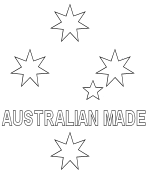Leeton Local History
Leeton is a town located in the Riverina region of New South Wales, Australia. It was established in 1912, during a period of extensive settlement in the Riverina area. The town was named after Charles Alfred Lee, who was the Minister for Public Works in New South Wales at the time.
The region around Leeton was originally inhabited by the Wiradjuri people, who had lived there for tens of thousands of years. The arrival of European settlers in the 1800s had a significant impact on the Wiradjuri way of life, and their population declined rapidly due to disease, displacement, and conflict with the newcomers.
The first European to explore the area around Leeton was Captain Charles Sturt, who passed through in 1829. However, it wasn't until the 1860s and 1870s that the area began to be opened up for settlement. Large areas of land were cleared for farming, and the region became known for its wheat, sheep, and cattle production.
The decision to establish Leeton as a town was made in 1912, following the completion of the Murrumbidgee Irrigation Scheme. This scheme had been in development since the late 1800s, and involved diverting water from the Murrumbidgee River to irrigate large areas of land in the Riverina region. The construction of dams, weirs, and channels allowed for water to be directed to farms and settlements, making it possible to grow crops and vegetables that had previously been unsuited to the area's dry climate.
Leeton was designed to be a model town, with wide, tree-lined streets and modern amenities. The town was planned around a central park, which became known as Mountford Park. This park included a bandstand, tennis courts, and a large lake for boating and fishing. The town also featured a cinema, a hospital, and a railway station, which connected the town to Sydney and Melbourne.
During the early years of its existence, Leeton was a bustling town with a growing population. Many new buildings were constructed, and the town's economy prospered. Over time, however, the town began to face a number of challenges. The Great Depression of the 1930s had a significant impact on the local economy, and many residents were forced to leave in search of work.
The town's fortunes began to improve in the 1940s and 1950s, with the establishment of new industries and businesses. The town became known for its fruit and vegetable production, and a number of canneries and food processing plants were established in the area. In the 1960s, the town also became home to a large rice mill, which processed grain from the nearby farms.
Today, Leeton remains a vibrant and growing town, with a population of around 7,000 people. The town is known for its agricultural production, and is home to a number of wineries, orchards, and vegetable farms. The area around Leeton is also a popular tourist destination, with visitors coming to explore the town's history and enjoy its natural beauty.
Overall, the history of Leeton is a fascinating and complex one. From its early days as a wheat and sheep farming settlement to its role in the Murrumbidgee Irrigation Scheme and its current status as a thriving agricultural town, Leeton has seen many changes over the years. Despite these changes, however, the town remains an integral part of the Riverina region, and continues to play an important role in the history and culture of New South Wales.


















